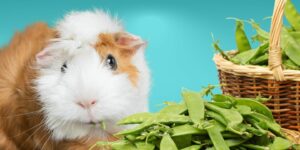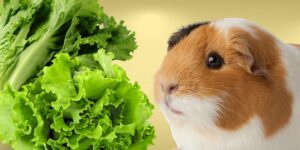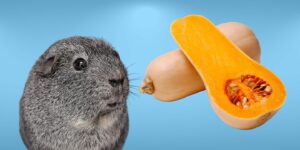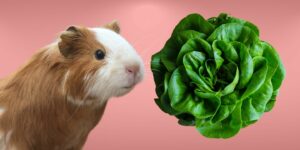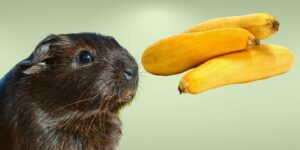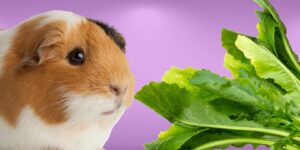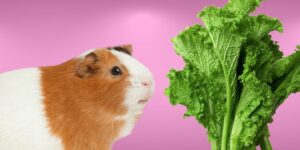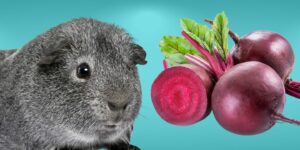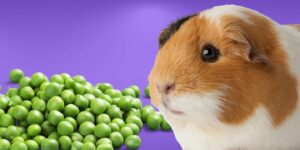The short answer is no, guinea pigs should not eat green onions. Green onions, also known as scallions or spring onions, belong to the Allium family, which includes other vegetables like garlic, leeks, and shallots. These vegetables can be toxic to guinea pigs and can cause a range of health issues.
Green Onions and the Allium Family
Overview of the Allium family
The Allium family consists of several types of vegetables, including green onions, garlic, leeks, and shallots. These vegetables are known for their strong flavors and health benefits for humans, but they can be harmful to guinea pigs.
Thiosulphate in green onions
Vegetables in the Allium family contain a compound called thiosulphate, which can be toxic to guinea pigs. Ingesting even small amounts of this compound can cause symptoms like vomiting, diarrhea, and difficulty breathing.
Other toxic vegetables for guinea pigs
In addition to green onions, other vegetables in the Allium family, such as garlic and leeks, should also be avoided in a guinea pig's diet.
Health Issues Caused by Green Onions
Symptoms of thiosulphate poisoning
Consuming green onions can cause symptoms such as vomiting, diarrhea, difficulty breathing, and lethargy in guinea pigs. These symptoms can result in dehydration and may require veterinary intervention.
Long-term damage and risks
In severe cases, ingesting green onions can lead to anemia and even death in guinea pigs. It's essential to ensure that your guinea pig doesn't have access to any vegetables containing thiosulphate to avoid these risks.
Safe Vegetables for Guinea Pigs
Benefits of vegetables in their diet
Vegetables are an essential part of a guinea pig's diet, as they provide essential nutrients, vitamins, and minerals. They help maintain a healthy weight and promote proper digestion.
List of safe vegetables and their nutritional value
Some safe vegetables for guinea pigs to eat include:
- Lettuce
- Spinach
- Bell peppers
- Carrots
- Parsley
Make sure to introduce new foods gradually and in small amounts to ensure that your guinea pig can digest them properly.
Creating a Balanced Guinea Pig Diet
The role of hay in their diet
Hay should make up the majority of a guinea pig's diet, as it provides essential fiber that keeps their digestive system functioning properly. Guinea pigs should have unlimited access to fresh hay.
Pellets and their nutritional value
A small amount of pellets can be included in a guinea pig's diet, as they are specially formulated to provide additional nutrients, vitamins, and minerals. Choose pellets that are specifically designed for guinea pigs.
Importance of clean water
Guinea pigs should always have access to fresh, clean water to prevent dehydration and support overall health.
Monitoring Guinea Pig Health
Signs of a healthy guinea pig
A healthy guinea pig will have bright, clear eyes, smooth fur, and a healthy appetite. They should be active and display natural behaviors, such as grooming and socializing.
Signs of illness or distress
If your guinea pig is experiencing any symptoms of illness, such as lethargy, weight loss, changes in appetite, or abnormal behavior, contact your veterinarian.
Regular vet checkups
Regular veterinary checkups can help detect early signs of illness and ensure that your guinea pig is as healthy as possible.
Frequently Asked Questions
Can guinea pigs eat cooked green onions?
No, guinea pigs should not eat cooked green onions, as they still contain thiosulphate and can be harmful.
Can guinea pigs eat other types of onions?
Guinea pigs should not eat any type of onions, as they all belong to the Allium family and contain toxic compounds.
What if my guinea pig accidentally ate green onions?
If your guinea pig accidentally consumes green onions, monitor them closely for any signs of illness, and contact your veterinarian if you notice any symptoms.
Conclusion
In conclusion, green onions are not safe for guinea pigs to eat and should be avoided. Instead, provide your guinea pig with a balanced diet that includes hay and a variety of safe vegetables. Monitor their portion sizes and weight to ensure that they are healthy and happy. Keep an eye on their health and schedule regular veterinary checkups. By doing so, you can ensure your guinea pig leads a happy, healthy life.



